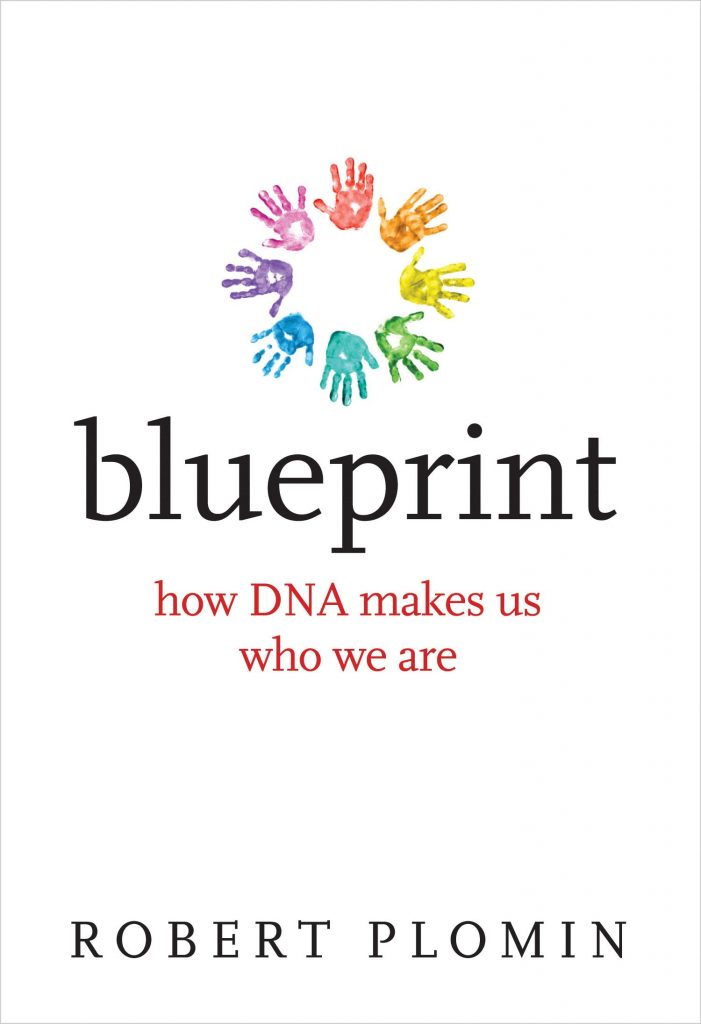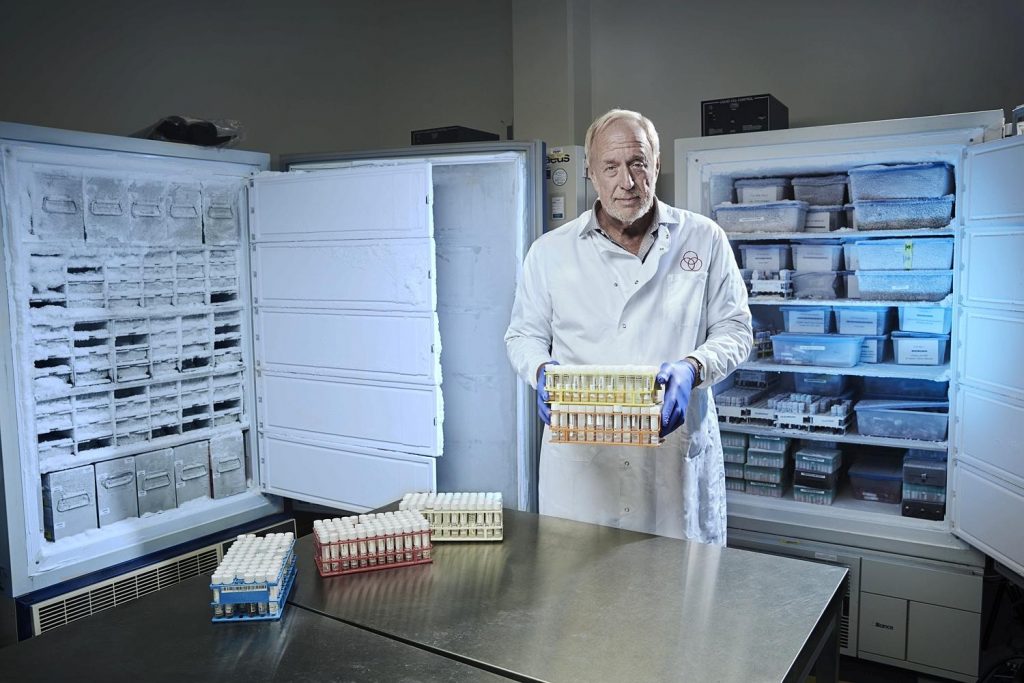
Plomin is a genetic psychologist. He studies the effect of our genes on who we are.
We all share 99% of our genes with each other. That’s what makes us human. We share about 97% of our genes with chimpanzees. It would not surprise you then to know that most of the 99% of the genes we share are controlling things like the fact that we have two arms and two legs are mammals, have a digestive system, etc.
The 1% of our genes that are responsible for all our human variation controls things like eye color and height. that is easy to understand. You would not be surprised to learn it also controls other things like our BMI body mass index. What might surprise you is the extent to which our genes are responsible for our personality.
It turns out that body mass index is 70% heritable. Diet and exercise and the environment in which we live are a factor but the largest part is genetic.
Our personality is also highly heritable. About 50% of our personality is encoded in our genes. Plomin studied identical twins adopted at birth and raised apart and found that they are remarkably similar. Children who are adopted show almost no correlation of BMI with their adoptive families but a lot of correlation to their birth parents who they only knew for a few days.

There are literally thousands of genes that give us our personality and many of these genes control other aspects of ourselves also.
There is another compounding aspect to this. The nature of nurture. If there are two children in a family they will each get a share of their parents DNA. Therefore they will be different in size and shape and also personality but also alike in some ways.
You can easily have a child who likes to read and one who does not in the same family. The one who enjoys reading may have been read to more when they were little. Did the parents treat them differently on purpose? Not at all. What happened is that one child asked to be read to and the other found it boring and did not. The parents are actually being modified by their children more than the other way around. (Like the humorous bumper sticker that reads “Insanity is inherited; you get it from your children”.) If one child is genetically anti-social the parents may treat them more harshly. In this case it is not the harsh treatment that made the child anti social. It is the other way around. If a child craves affection their parents will spend more time cycling them.
As we go out into the world a lot of random stuff happens to us and there is nothing we can do to control that. However there are a lot of things under our control. Who chooses our friends? We do! Our choice in friends reinforces who we are.
Some people who read this may find it upsetting because afterall getting dealt a genetic hand not only on our sex, skin color, height and weight but also our personality as well seems a bit unfair.
It does seem unfair that so much that contributes to our outcomes in life was determined genetically at conception. Then we tend to choose the things in life that reinforce our personality differences. The remainder of what influences us (socioeconomic status and the society into which we were born) is mostly random stuff that we have no control over. Genetic inequality to which is added, the inequality of our circumstances in which we grew up.
Here is my take on it though.
I think it feels unfair only because we are looking at it through a narrow lens of individual success. Individual selection in a game of survival of the fittest. But what if life is about group level selection. What if we do well because our group does well?
“If you can find a group that is highly accepting of differences and highly collaborative, where you feel you can openly bring your whole uniquely quirky self to work, you have probably found a group that is and will be successful.”
GAVIN WATSON
Take the Olympics as an example. Obviously success in pole vaulting requires a particular body type. Gymnastics is better suited to a person who is a bit smaller. Both of these people need to have little fear of heights though. The Olympics, like life, are not just one sport. We have been dealt a genetic hand of cards and the environment in which we grew up. But life is complex. Who is to say at conception which hand is best?
We are group creatures. Our individual success depends on the success of our group and our group’s success depends on having a wide variety of sizes and shapes and personality types in it. Equality is not helpful in group level selection. Individuality is. The only limiting factor in how varied our group can be is that we need to get along and collaborate at least most of the time. A leader determines the extent to which we either hold the space open for and celebrate differences or do not.
It is not so important what traits I have been dealt. What is important is that our group can collaborate well with different individuals. Making the best use of our differences to help the group.
If you can find a group that is highly accepting of differences and highly collaborative, where you feel you can openly bring your whole uniquely quirky self to work, you have probably found a group that is and will be successful.
Groups that are overly concerned and rigid about procedure, dress code, and job descriptions will not do as well.
I heard a talk by a young woman who had just got her masters in business and was hired by a large company who wanted to increase their diversity. She had a very different ethnic and experiential background. She really needed the job. She had school loans to pay off. She hated her job! She was required to comply with the strict dress code and do her work in the same precisely defined way as everyone else. “Why did they hire me? They could have hired anyone to do this job”!

What I would really like you to take away from this is that each of us is unique. I can’t help being who I am, and you can’t either. Neither can that young person you just hired. Work with the grain of human personality not against it. A company’s success comes from respect, and collaboration. Instead of trying to control people with rigid job descriptions, encourage job crafting. Let everyone’s individual strengths come to bear on what we sense needs to be done at this moment in furtherance of our group’s mission.
Cheers for Friday,
Gavin Watson, Chair, Conscious Capitalism Connecticut Chapter
Latest Posts
